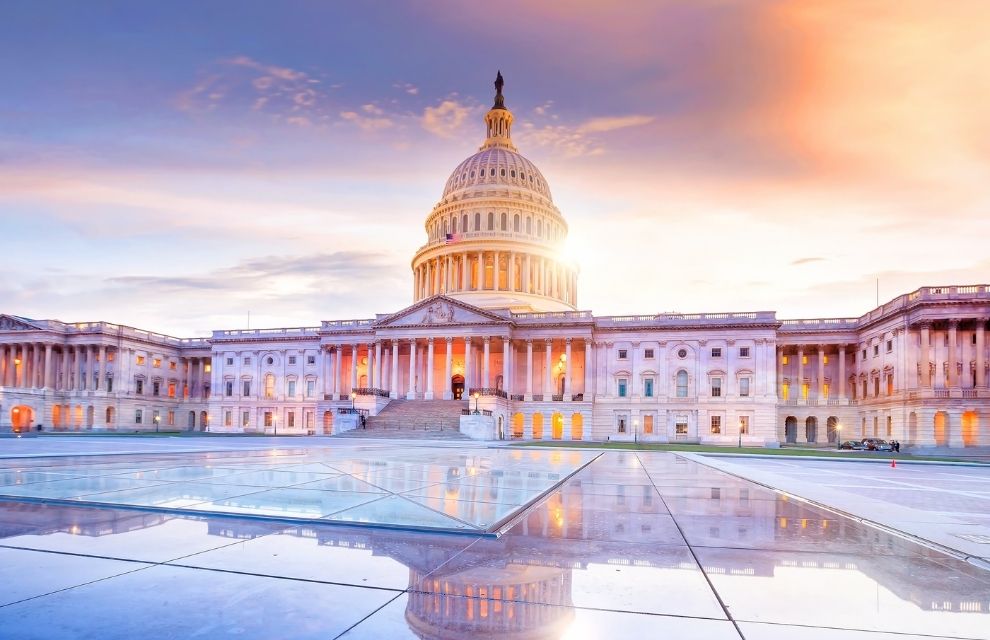The second House of Representatives hearing to dissect the events around the January GameStop short squeeze will bring a new wave of calls for enhanced transparency into securities lending and short selling in the US.
The majority of witnesses set to face questions from members of the US House Committee on Financial Services today are expected to cite new or enhanced disclosure rules for hedge funds and brokers among their primary recommendations for how US regulators should respond to the apparent retail trading surge in so-called ‘meme stocks’.
Speakers ranging from academics to representatives from retail brokers and infrastructures have published their opening statements outlining their arguments ahead of the hearing called by US representative Maxine Waters, who also serves as committee chair.
Waters has outlined ambitions for a total of three hearings on the matter, with the third mooted as the forum to confirm concrete proposals for new rules or amendments to existing frameworks that the House will recommend to regulators.
Michael Blaugrund, chief operating officer of the New York Stock Exchange
Blaugrund will use his opening remarks to state that “short selling is an essential practice for liquidity, price discovery and risk management, but the securities lending market on which it depends is opaque and inefficient”.
Blaugrund will argue that current frameworks to report short positions and securities borrowed are insufficient and fall far short of established practices in equity markets which are recorded on the Consolidated Tape.
“The SEC should consider establishing an analogous Consolidated Tape for securities lending,” Blaugrund suggests, adding that “a system that provided for publishing the quantity, fees and/or rebates, duration and other material terms for each securities lending without attribution would provide issuers, investors and regulators the necessary data to better assess the risk and return of establishing a short position, while protecting the identity and intellectual property of any individual market participant”.
At a minimum, Blaugrund recommends that the Securities and Exchange Commission (SEC) should collect securities lending data and make it publicly available.
Blaugrund also underscores a suggestion made ahead of the first hearing that section 984(b) of the Dodd-Frank Act “provides a sensible framework” for the SEC to tackle the issue of securities lending transparency.
“The SEC advanced aspects of Section 984 in crafting requirements for certain investment funds but has yet to address requirements for broker-dealers in this area,” he says. “Establishing a Consolidated Tape for securities lending is a common sense way to bring more transparency to this dark area of the market.”
Alexis Goldstein, senior policy analyst at not-for-profit Americans for Financial Reform
Goldstein, who previously served at several major Wall Street names and now advances regulatory amendments on behalf of the not-for-profit, will highlight shortcomings in the current Form 13F disclosure.
Form 13Fs must be completed by institutional investment managers with at least $100 million in assets under management.
The current rules only require quarterly filings and no not include short positions.
Goldstein advocates lowering the $100 million threshold and increasing the frequency of filings.
Dennis Kelleher president and CEO not-for-profit Better Market
Kelleher is set to focus on the use of a security’s borrow demand, put-call activity and days-to-cover ratios as proxies for detecting short selling activity in lieu of reported data.
However, he will also argue these metrics and the data shared by broker-dealers “do not adequately capture the levels of short interest across financial firms or in a sufficiently timely manner”.
Kelleher further notes that these measures do not include the short interests acquired
through derivatives that provide leveraged exposures to securities, or baskets of securities, without any purchase or sale of the underlying securities.
As such, the committee must exercise its full oversight and legislative functions to investigate and explore reforms in several key areas including enhanced disclosure rules for broker-dealers and other market participants with a particular focus on equity derivatives.
Kelleher also questions whether short-selling restrictions should be effected on an investor-by-investor, broker-dealer by-broker dealer, or other basis beyond a certain ratio of the number of shorted securities to the total float in that security.
There are also issues around whether repeated fails-to-deliver in connection with short-selling is presently subject to sufficient enforcement and sanctions and, if not, whether and how enforcement and sanctions must be strengthened, he adds.
Finally, Kelleher raises the prospect of changes to Regulation SHO or related short selling restrictions, for example disclosure requirements under section 929X(a) of the Dodd-Frank Act and/or reinstatement of the uptick rule, which he says would have ameliorated the precipitous declines in GameStop and other ‘meme stocks’ and better protected investors and markets than the current short-interest regulatory framework.
Michael Piwowar, executive director of the Milken Institute Center for Financial Markets
Piwowar will open his statement by addressing widespread misconceptions that have been highlighted along the way in the GameStop saga, specifically accusations of naked short selling and market manipulation.
Academic research shows that short selling generally has a positive effect on market quality, he suggests, while also protecting other investors by detecting and publicising fraud.
Piwowar recommends that the SEC should hold a public forum and open a request for comment on the transparency of securities lending. In evaluating various transparency alternatives, the SEC should distinguish between regulatory reporting and public transparency.
“Regulatory reporting refers to the information available to the SEC to perform its regulatory functions,” he explains, while “public transparency refers to the information that the SEC makes available to market participants, investors, and academic researchers”.
From this consultation, the commission should use economic analysis to determine whether and, if so, how to increase regulatory reporting in securities lending, he adds.
“The SEC should conduct a separate economic analysis to determine how much, if any, new information should be provided to the public.”
Now read: GameStop: Now the dust has settled, what comes next?

.jpg)


